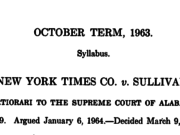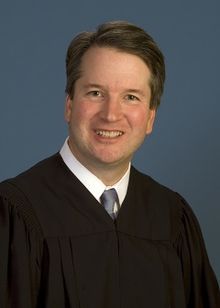Last week, FiveThirtyEight published an article analyzing the First Amendment jurisprudence of Supreme Court Chief Justice John Roberts. While the overall thrust of the article – that Roberts is a prolific writer of expansive First Amendment judicial opinions – is correct, its analysis of free speech rights is flawed in other ways.
Two paragraphs, in particular, feature among the most problematic suggestions from the piece:
Although the Roberts court seems to be interpreting free speech in a new way with these decisions, some historians say that free speech has always been ideologically flexible. According to Laura Weinrib, a historian and professor of law at the University of Chicago, corporate titans like the Ford Motor Company were part of the early push for broader free speech protections precisely because they recognized the power of the First Amendment for advancing their own causes, while organizations like the ACLU strategically accepted a “neutral” vision of free speech that protected the strong (companies like Ford) as well as the weak (union workers seeking the right to strike) in order to secure early victories for labor rights. Those twin forces helped pave the way for today’s understanding of free speech under the Roberts court.
It’s that question of what free speech protections should do – and whether it’s acceptable to muzzle stronger voices if they’re drowning out weak or unpopular opponents – that may help explain the Roberts court’s rightward turn on corporate speech.
First, it should go without saying that constitutional liberties possess a value far beyond what they “do” for society. Protecting free speech is an end in itself. While there are longstanding philosophical arguments about the societal value of free speech for fostering public debate in a democratic society and bringing new ideas to the mainstream – arguments that the Institute for Free Speech has advanced frequently – the key reason for the First Amendment is that it is fundamentally unjust for a governing authority to dictate what one can say.
The notion that free speech is only valuable insofar as it can be used as a tool to shape a preferred societal outcome is wrongheaded and detrimental to liberty. It suggests that a higher authority can revoke rights once they cease to serve some vaguely-defined public purpose. While First Amendment protections are not absolute, the exceptions are few and narrow, and not predicated on whether speech is useful for social or political movements.
The article discusses a conception of free speech that concerns itself more with the status of the speaker than the speaker’s natural rights. Specifically, it looks to the power dynamics of different speakers when examining the content and “purpose” of their speech and uses that criteria to measure the value of the speech. From there, the need for regulation is derived – with less sympathetic speakers and ideas facing more restrictions than others.
But those interpretations of power wrongly simplify speakers into “strong” (like corporations) and “weak” (like union workers). In reality, it is an expansive view of political speech that allows individually weak interests to organize and pool their resources into more powerful institutions. This enables competing groups to make their voice heard, even if one group’s ideas initially do not have the support of most Americans. Proponents of same-sex marriage are one such example of organizations that have used their free speech rights to gradually persuade the American public.
Furthermore, the article wrongly portrays speech as a zero-sum game. From this perspective, one group’s speech must necessarily come at the expense of another’s speech by “drowning it out.” But in an era when different forms of media are more decentralized and accessible than ever before, this argument is likewise less accurate (or persuasive) than it has ever been. In fact, it is only when powerful institutions like the government insist upon having the ability to closely regulate such outlets that smothering free speech even becomes a possibility.
To suggest that the expansion of free speech rights is harmful if it benefits speakers that you may not like corrodes those rights for everyone. After all, who knows when somebody in power may want to silence your speech next?














